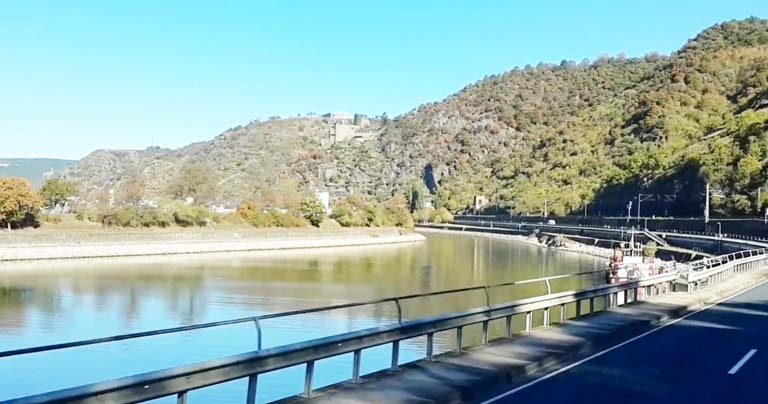An ecosystem in need to enhance Hydropower capacity in India
By EPR Magazine Editorial January 5, 2022 11:19 am IST
By EPR Magazine Editorial January 5, 2022 11:19 am IST

Hydropower plant development necessitates a large amount of land occupied by people who have built their lives along river banks and deltas.
With COP26 almost concluded with many more focusing on the role of renewable energy like solar, wind and the new technologies like EVs among others, I want to draw some focus to the most sustainable sources of energy viz. Hydropower.
Water is the primary source of life, and the civilisation started developing around rivers, and even till date many indigenous tribes dwell around these rivers almost every day. At the time of independence, it was believed that the construction of massive dams would address many of India’s issues; and the country’s first Prime Minister, Pandit Jawaharlal Nehru proudly declared the dams as the “temples of contemporary India.” He believed that they would not only generate energy and provide water for farmers and irrigation utilities, households and enterprises, but also create a livelihood for many families directly and indirectly.
Though the primary goal of constructing multifunctional river projects in India was to combine agricultural and village economic development with rapid industrialisation and urbanisation, they stand as an epitome for flourishment and sustained economy.
At the beginning of this millennium, the Late Prime Minister Atal Bihari Vajpayee has launched an ‘initiative’ for adding 50,000 MW of hydroelectric power in 16 states. But as per CEA status report at the beginning of the year, suggested that out of 162 projects with an estimated outlay of ₹3.13-₹4 Lakh Crore, only 37 projects have got their DPR prepared with a decreased capacity of 18487 MW against 20435 MW, as per the PFR. 7 projects are at the state of survey and investigation, 66 projects are yet to be allotted and 52 projects were dropped on account of environmental and local agitation. Out of the 162 projects, only 1 project is commissioned and 8 projects are under construction.

Unfortunately, there was a bearish period where almost no new Hydel projects were announced despite having huge hydropower potential in the North and North-eastern states.
The development of hydropower plants need lots of land occupied by the people who designed their life along the river banks and delta. The dwellers, apart from finding livelihood along the rivers but also are the biggest contributors in protecting the ecology around the rivers both flora and fauna.
With an experience of working directly and indirectly on the development of Hydro Power Projects in Jammu Kashmir and Jharkhand at various levels on drafting the policy to appraisal on the prepared DPRs, the development of hydropower projects is not an easy even on paper, issues on environment, social and climatic aspects are very prominent and there needs to be a framework to address the issues on a sustainable basis.Fortunately, the laws in the country have enough content and substance to address the concerns, yet providing enough scope for the development of small hydro plants. At the same time, the insatiability of some developers has exploited such provisions of the laws, damaging the ecosystem and livelihood, which resulted in unrest among the locals near the rivers. The projects with poor due-diligence has eventually got the policymakers to stay away from the further push for the development of small hydro and in fact, in an adverse manner by tightening the laws on land acquisition from tribes.

However, in 2019 re-classification of Hydro Power plants under Renewable Energy has given some push to the development of Hydropower plants especially the under construction and concurred projects. Reclassification means that the purchase from the hydropower plants can be accounted for under RPO fulfillment. With the 6 power already cheaper than the conventional and the old hydropower plants already have 100 percent PPA and the high cost of electricity from the under construction hydropower plants mainly attributed to IDC, still gets very little in interest from the buyers. In January 2019, a report by the parliamentary standing committee reiterated the apprehensions on the snail pace development of the hydropower sector. The current hydropower capacity in the country is around 47 GW against the total potential of 242GW.
We have a huge scope for exploiting the hydro potential. However, it can be only done by redesigning the policy and creating a new investor ecosystem by a true sense of public-private partnerships with local people being one of the shareholders not just mere stakeholders of the project and in water management and cooperative living perceptive. Examples of East Africa, Laos, Honduras, and practice by La Esperanza in developing small hydro plants in the basin of the Intibuca River in Honduras should inspire more.
A hybrid Economic, Environment and Social accounting system should be devised with the initial financial models also accounting for brown (fisheries) and green revenue (forest-dependent livelihood and eco-tourism) both in CAPEX and OPEX tabs. The OPEX should involve the employment cost of families whose livelihood was lost and with a revenue sharing model with allied sectors who are indirectly associated with river basic livelihood.
Authors:
We use cookies to personalize your experience. By continuing to visit this website you agree to our Terms & Conditions, Privacy Policy and Cookie Policy.